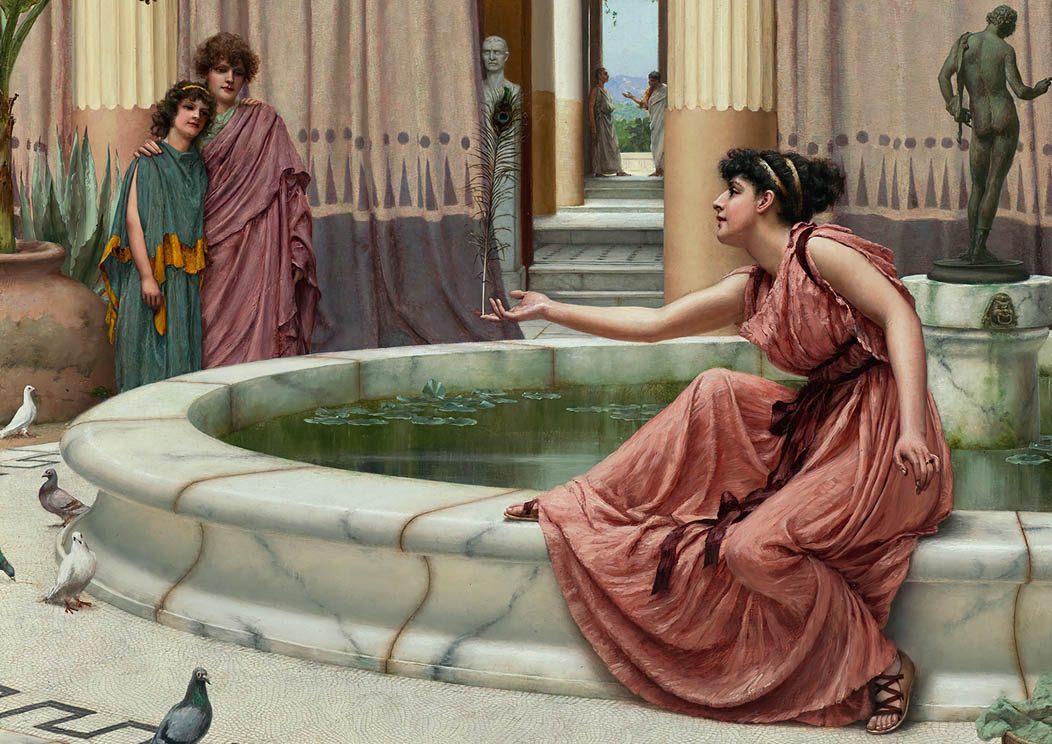Ashes and Shadows
23 June 2023
This is my translation Horace’s Ode IV.7, famous for the opening words “Diffugere nives,” and the echo of Abraham’s sentiment that we are but “ashes and shadows.”
The snows have gone. The grass returns
to the meadows and buds to the trees.
Earth alters and the streams
trickle down between their banks.
Grace, with her nymphs and her twin sisters,
naked leads the dancing circle.
Don’t dream of deathless things—
the year warns and the hour steals the sweet day.
Cold yields to spring winds, but spring,
buried in its turn, will pass into summer.
Bountiful autumn pours out its fruit
but soon the lifeless winter comes round again.
The quickening moons recover
their losses in heaven, while we—
When we go down where pious Aeneas went,
where rich Tullus and Ancus went
—we are but ashes and shadows.
Who knows whether the gods above will add
tomorrow’s times to this day’s account.
Everything you’ve gathered for your own sweet soul
will slip through the hands of your heir.
When you finally die,
and Minos has given his fateful judgment,
It won’t be your family name, Torquatus, it won’t be your genius,
it won’t even be your religion that saves you.
For Diana does not free Hippolytus
from the shadows below,
Nor can Theseus break his precious Pirithous
from the chains of Lethe.
to the meadows and buds to the trees.
Earth alters and the streams
trickle down between their banks.
Grace, with her nymphs and her twin sisters,
naked leads the dancing circle.
Don’t dream of deathless things—
the year warns and the hour steals the sweet day.
Cold yields to spring winds, but spring,
buried in its turn, will pass into summer.
Bountiful autumn pours out its fruit
but soon the lifeless winter comes round again.
The quickening moons recover
their losses in heaven, while we—
When we go down where pious Aeneas went,
where rich Tullus and Ancus went
—we are but ashes and shadows.
Who knows whether the gods above will add
tomorrow’s times to this day’s account.
Everything you’ve gathered for your own sweet soul
will slip through the hands of your heir.
When you finally die,
and Minos has given his fateful judgment,
It won’t be your family name, Torquatus, it won’t be your genius,
it won’t even be your religion that saves you.
For Diana does not free Hippolytus
from the shadows below,
Nor can Theseus break his precious Pirithous
from the chains of Lethe.

